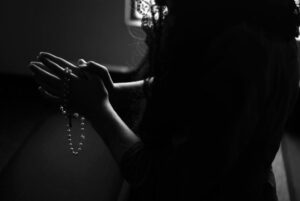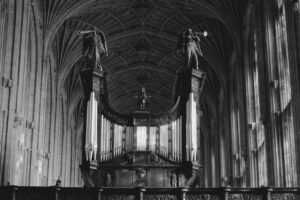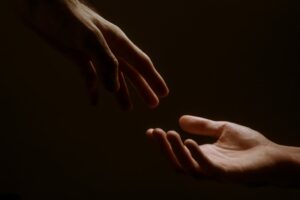“It’s not so much what you know, but who you know.” Each of us has likely heard this maxim before, touted as the key to making real progress in your professional life. Well, in the Christian life, it’s actually what you know about who you know that is the key to making real progress.
The saints write about a two-fold knowledge without which we can never advance in the spiritual life or grow in Christian perfection: the knowledge of God and the knowledge of self. If we get either wrong, we cannot move forward. In fact, since in the spiritual life there is only progress or regress – never stagnation – if we get either wrong we wind up heading in the wrong direction on a road paved with good intentions.
Yet, what we know about God and about ourselves are each twofold as well.
As for God, first we need to know that God is the almighty Creator of heaven and earth, who orders all things according to His providence, and will judge the living and the dead. He is the eternal, immeasurable, incomprehensible, infinite One, who is inexpressibly loftier than anything else which exists or can be imagined. This should evoke in us a “holy fear” and impel us to offer fitting worship, adoration, thanksgiving, and praise to His great majesty, as well as to keep His commandments meticulously. Yet, in tension with this is a second truth about God. He is a Father who chose us from before the foundation of the world, who knows and cares for our needs, and who pays such careful attention to us that He has counted every hair on our heads. He is the God who is Love and whose name is Mercy, and who sends His only begotten Son to die on a cross so we can have forgiveness of sins and hope of Heaven. In the pierced hands, feet, and side of Jesus we see the length to which God will go to seek and save the lost.
We have also likely heard the Shakespearian verse: “Know thyself, and to thine own self be true.” Well, perhaps… if we recall that there are two sides to self-knowledge that likewise must be held in tension. First, we have an exalted dignity. We are created in the image and likeness of God, we are so valuable that we were bought at the price of the priceless blood of Jesus, we are the adopted sons and daughters of God, the King of Heaven and earth, and if a child, then an heir to the Kingdom. Yet, on the flipside, when we consider the heavens, the moon and stars, what are we that God pays us any mind? We aren’t even a sub-atomic particle in the great scheme of the universe. We are mere creatures, our lives a passing shadow, utterly dependent on God for our being and for our continuing in being. On top of that, we are sinful creatures. The dire reality of our metaphysical situation, as Dietrich von Hildebrand put it, is that no human force can heal the wound inflicted upon our nature by original sin – we are powerless to remove the guilt of sin, the inclination to sin, or the lust that is its inheritance (just read how St. Paul describes it in Romans 7:14-25). And sin is no small thing: it separates us from God and its payback is death. If you need more convincing about sin’s seriousness, look again at the pierced hands, feet, and side of Jesus.
Why is this twofold knowledge necessary for progress in our spiritual lives? This can be summed up in the words of the Devil to St. Catherine of Siena: “Damnable woman! There is no getting at you! If I throw you down in confusion, you lift yourself up to mercy. If I exalt you, you throw yourself down.” The fact is, if we were only to focus on God as the almighty Creator and Judge and on our own insignificance and sinfulness, we would be prone to despair. If we were only to focus on God’s tender care and loving mercy, and on how “special” and “good” we are because of the dignity that has been bestowed on us (key word: bestowed), then we would be prone to presumption. Despair and presumption, incidentally, are the twin sins against the theological virtue of Hope.
To avoid these, we should do what St. Catherine did. When we are tempted with presumption, we need to remember that God is the almighty Creator and Judge and that we are pathetic sinful creatures incapable of saving ourselves. And when we are tempted with despair, whether due to the weight of our sins and our own feelings of insignificance, we need to remember God’s indomitable love and mercy, and that we are each God’s beloved son or daughter, of more value than the entire universe (as Venerable Fulton Sheen was fond of saying). On all counts, meditating on the pierced hands, feet, and side of Jesus will help to jog our memory.
In the end, what we need is a good dose of honesty. Honesty is acknowledging reality. The reality about us and the reality about God. Then, we will begin to make some real progress.
David C. Hajduk, Ph.D. has over thirty years of experience in religious education and pastoral ministry, including youth, family life, and pro-life ministries. David did his doctoral work in Theology at Maryvale Institute in Birmingham, England, and wrote his dissertation on the thought of St. John Paul II. Since 1998, David has been a member of the Theology Department at Delbarton School in Morristown, New Jersey, and since 2002 has been the Director of Mission and Ministry. David also has served as an Adjunct Professor of Moral Theology at Immaculate Conception Seminary School of Theology at Seton Hall University since 2008. He is the Theological Programming Director for Array of Hope, a ministry in service of the “New Evangelization” that shares the beauty and truth of the Catholic faith through high quality media and events that are current, relevant, and engaging.
David is an acclaimed and versatile speaker, having given keynote addresses at conferences, presentations to high schools and colleges, parish talks to youth groups, Confirmation classes, and parents, diocesan training workshops, and marriage preparation catechetical days. He is the author of God’s Plan for You: Life, Love, Marriage & Sex (Pauline Books & Media, 2006, 2018), a book for teens on the Theology of the Body, which received the Catholic Press Association of the United States & Canada Book Award in 2007.
David resides in Belvidere, New Jersey. He and his wife, Shannon, have 11 children and homeschool.




